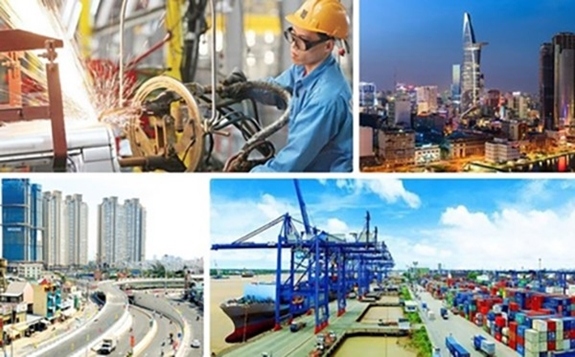Bangkok Post notes Vietnam as investment destination despite COVID-19
VOV.VN - Investment during the COVID-19 pandemic has proved challenging for investors worldwide, although hopes for the Vietnamese economy are growing as the local market outperformed other international peers thanks to its GDP growth amid COVID-19 last year, according to the Bangkok Post.
Whilst the impact of the pandemic has dampened the high growth seen at the start of the year and GDP growth in the first nine months is less than the market forecast of 1.4%, Maetha Peeravud, assistant vice president of Fund Management Group, BBL Asset Management, believes the local economy has passed its lowest point.
“Looking three to six months ahead, the outlook for the Vietnamese economy is positive,” he was quoted by the Bangkok Post as saying.
The COVID-19 vaccination rate is increasing, particularly as large cities like Ho Chi Minh City and Hanoi have already giving the first jab to over 90% of their population, Peeravud said, adding that the country is expected to achieve herd immunity in the first or second quarter of next year.
Geographically, the nation boasts a strategic location for its high-performing export sector. With a clear focus on education, free trade agreements, and labour skill enhancements, the country is important to the global supply chain, including Samsung, the Korean multinational manufacturing conglomerate, which allocates over half of its mobile phone manufacturing capacity to the nation.
Furthermore, Bloomberg forecasts Vietnamese GDP will grow at 7% next year, one of the highest rates in the Southeast Asian region.
Peeravud also agreed with Bloomberg’s positive outlook, identifying three major long-term themes.
First, the country’s urbanisation rate will lead to a demographic dividend, namely the economic growth resulting from a change in the age structure of the population.
Over half of the Vietnamese population is under 35, with the number of workers in the industry and service sectors increasing, while those in agriculture are decreasing, suggesting a major shift toward higher income generation.
Secondly, the nation is benefiting from industrialisation growth from foreign direct investment (FDI).
Most notably, the country enjoys strong support in developing more advanced technology and high-skilled labour training from global technology companies, which in turn can help produce more premium products, he said.
According to Maetha, digitalisation represents the third factor contributing to Vietnamese growth.
Along with its five-year plan, the Vietnamese Government is also targeting the digital economy share of GDP to grow from 5% in 2019 to 20% in 2025, he added.

